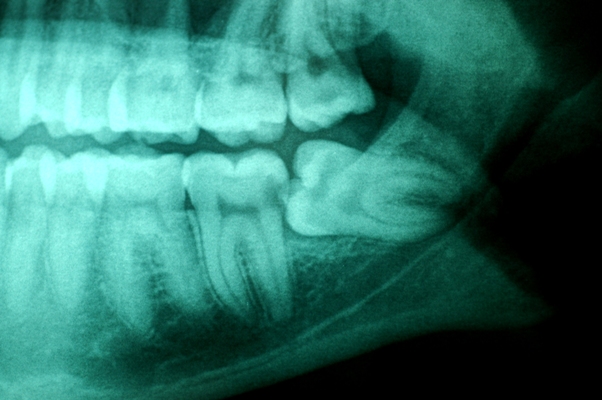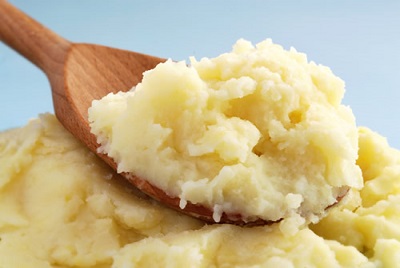Wisdom teeth are your third molars and are usually the last to appear in the mouth. They may come in between ages 17 and 25 years, which is why it is sometimes called the Age of Wisdom.
The growing-in wisdom teeth completely may be functional and painless. As long as you keep them free of cavity and your gums free of disease, you may have no problems. They may require professional cleaning regularly, as well as annual check-ups with periodic X-rays just to monitor any changes.
Wisdom Teeth Growing In: Should I Worry?
 If your wisdom teeth are healthy and well-positioned, you may have no problems. However, problems with ingrow wisdom teeth occur when:
If your wisdom teeth are healthy and well-positioned, you may have no problems. However, problems with ingrow wisdom teeth occur when:
- The teeth break through the gums only partially due to lack of space, causing a gum flap to develop over them. This flap may trap food, leading to gum infection.
- The wisdom teeth get impacted or stuck in the jaw because they are unable to break through the gums due to lack of space.
- The teeth grow in a crooked manner or face the wrong way.
- They grow in far back in the mouth that you have difficulty cleaning them.
- Cysts form around the teeth, which can damage their roots or the jawbone.
Symptoms of wisdom teeth growing in or wisdom teeth problems include:
- Pain
- Jaw stiffness
- Irritation from the tooth rubbing against the top/bottom of the mouth, cheek, or tongue
- Infection of the gum flap
- Teeth crowding
- Tooth decay
- Gum disease
Wisdom Teeth Growing In: When to Remove
You may decide to have ingrown wisdom teeth removed if:
- They cause pain/injury to other teeth
- They prevent the development of other teeth
- They interfere with some planned dental/jaw treatments
- There are risks involved with the procedure
You may reconsider not removing a wisdom tooth if it does not affect other teeth or if it could replace some lost or damaged molars.
How to Deal With Pain After Surgery
When you decide to take a surgery to relive the wisdom teeth growing in, you will also need to know something in advance about how to deal with pain after surgery.
1. Painkillers
Common painkillers used after surgery including acetaminophen (paracetamol). Aspiring is not recommended because it may cause increased bleeding.
You can take 400 mg ibuprofen or 1000 mg acetaminophen. Combining 400mg ibuprofen and 1000 mg acetaminophen and taking them every eight hours gives more effective and longer lasting pain relief. Just be careful not to take more than the maximum dose for these drugs (800 to 1,200 mg/24 hours for ibuprofen and 4,000 mg/24 hours for acetaminophen).
2. Take Care of Your Diet
After the procedure you must avoid smoking and drinking hot drinks to support the healing process. Avoid eating hard foods and instead, eat those that can be easily broken down such as:
|
Food Choices After Wisdom Teeth Removal | |
|---|---|
|
Milkshakes or, or Protein shake
|
Pudding, Jello
|
|
Gelato
|
Hummus
|
|
Yogurt
|
Smoothies
|
|
Mashed potatoes
|
Scrambled Eggs
|
|
Applesauce
|
Sorbet
|
|
Soup
|
Milk
|
3. Avoid Strenuous Exercise
To relieve the pain after the surgery that done due to wisdom teeth growing in, avoid strenuous activities or sports. Refrain from having a sauna bath for a few days after getting your wisdom teeth pulled since this might interfere with wound healing.
4. Home Remedies for Wisdom Teeth Pain
|
Remedies |
How to Use |
|---|---|
|
Ice Pack |
Apply an ice pack over the swollen area to reduce inflammation and pain. Use as needed. |
|
Olive Oil |
Heat a small amount of olive oil and allow it to cool. Once it is lukewarm, pour a little amount into the ear on the same side of your tooth. |
|
Whiskey |
Take some whiskey in your mouth and hold for one minute. This helps reduce swelling and pain. Swallow/spit out the whiskey after one minute. |
|
Peppermint |
Dab some peppermint extract on a small piece of cotton and place it on your aching tooth. |
|
Vinegar |
Swish some vinegar in your mouth for several seconds and spit it out. |
|
Cucumber |
Cut a thin slice of chilled cucumber and place it on your wisdom tooth to provide pain relief. |
Possible Side Effects of Removing Wisdom Teeth
Removal of wisdom teeth growing in can cause damage to adjacent nerves or blood vessels. Bleeding and temporary numbness of your face or tongue may occur. Serious infection is rare. Permanent numbness or serious damage to other teeth occurs in about one percent of patients. These risks depend on the extent of the procedure done.
Most patients experience pain and swelling of the mouth and cheeks after wisdom tooth removal as well as inability to open their mouths for hours. If pain recurs after a few days or gets worse, accompanied by bad breath or swelling, infection must be suspected. This may happen if clotted blood around the wound gets loose too soon, thus leaving your wound unprotected.












